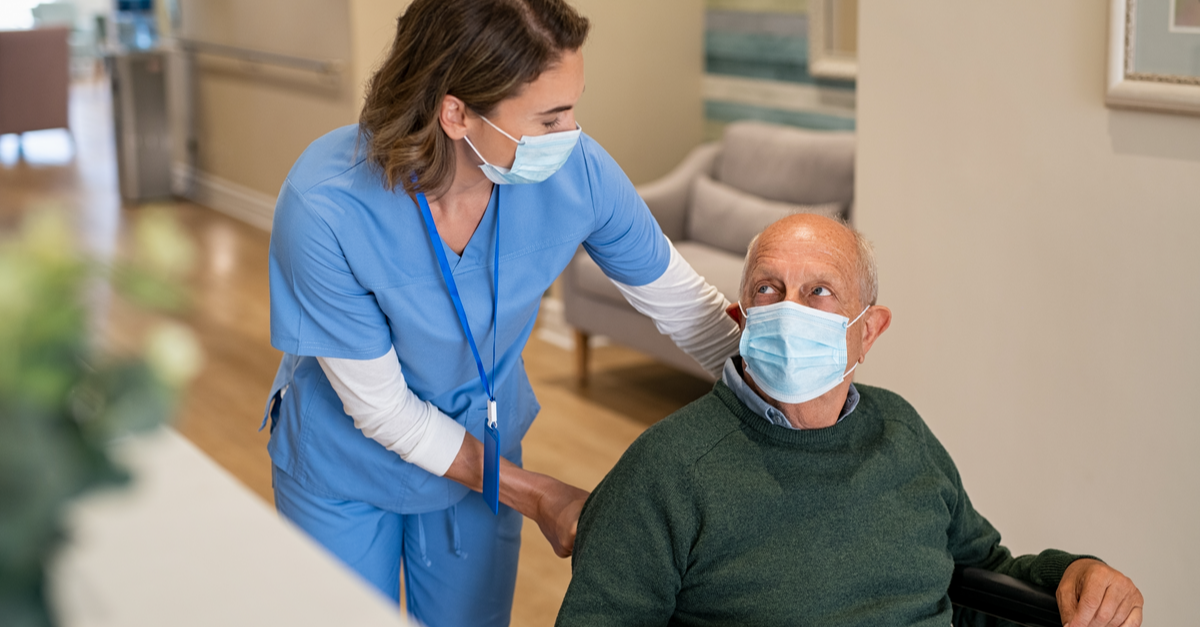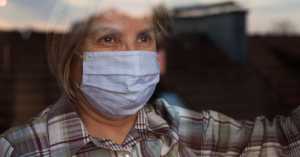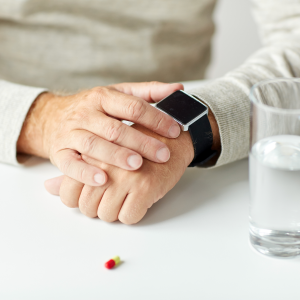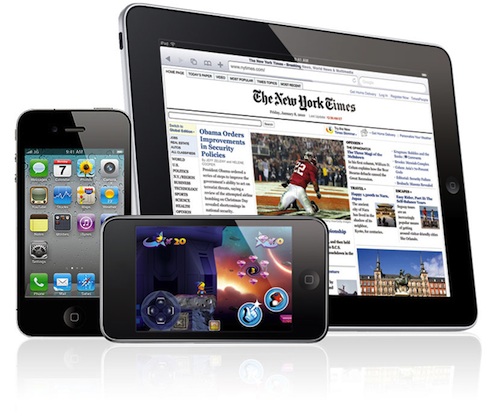4 min read
Access Control: Sticking to Safe Touch-less Methods
When navigating access control, security managers are looking at a method of guaranteeing that users are who they say they are. Based on that data,...
2 min read
Samantha Kalany : Nov 17, 2023 4:52:07 PM

 Healthcare officials were busy long before the vaccine was on the horizon. They were essentially thrown to the wolves to combat the early days of the COVID-19 pandemic.
Healthcare officials were busy long before the vaccine was on the horizon. They were essentially thrown to the wolves to combat the early days of the COVID-19 pandemic.
Thankfully, with the help of innovative software companies, many healthcare practices were able to up their care offerings with the assistive use of advanced, intelligent technology solutions. From Telehealth to pharmaceutical sensors, these superheroes enhanced their approaches to providing the best patient care possible. Who better give this level of care to senior care facilities that were shut off from the rest of the world due to lockdown and quarantine procedures like never before experienced?
On Generational Care
Older generations aren’t as used to the advanced mobile devices and technology solutions common among millennials and younger generations, so it can be pretty tricky for these elderly individuals to learn such techniques on their own. Users will need a smooth and positive introduction to these tools so they don’t feel overwhelmed at first glance. Software installments should be loaded and functional onto every device so the user won’t need to fiddle with bug fixes and updates.
Devices Here and There
 Wearable devices have become a large piece of defining senior care technology. Supply these individuals with the responsibility and reminder to take their pills or monitor their heart rate can give them a sense of purpose, making them feel like they are helping out in the bigger picture. These devices can also act as padding to detect if a fall were to occur or if the device noticed a drop in vital signs; the appropriate staff member or healthcare professional would be promptly contacted to take more intensive steps towards correcting the issue. From a logistics standpoint, these pendants and wearable accessories have been known to assist with COVID-19 contact tracing, depending on who has been where and around who else.
Wearable devices have become a large piece of defining senior care technology. Supply these individuals with the responsibility and reminder to take their pills or monitor their heart rate can give them a sense of purpose, making them feel like they are helping out in the bigger picture. These devices can also act as padding to detect if a fall were to occur or if the device noticed a drop in vital signs; the appropriate staff member or healthcare professional would be promptly contacted to take more intensive steps towards correcting the issue. From a logistics standpoint, these pendants and wearable accessories have been known to assist with COVID-19 contact tracing, depending on who has been where and around who else.
Studies have found that technology devices and services have been relatively effective in reducing social isolation among seniors, especially during the COVID-19 era; smartphones, smart devices, and tablets have also worked to provide activities for social interaction and information sharing. Voice Assistants can offer a helping hand for various tasks, especially for senior citizens who may be more bedridden than others.
Functions that may appear difficult for many, such as changing the thermostat, answering the telephone, or seeing who has rung their doorbell, can all be readily handled with the help of an intelligent voice assistant. The rise in new technologies will benefit elderly adults with extended health and longevity by enabling more competent and informed outlets for these individuals to adopt. To reap the benefits of such advanced technologies, options must be made inclusive for all parties.
Visitor management within senior care and assisted living facilities is a massive component of effective leadership, especially when protecting elderly adults from COVID-19 exposure. Many facilities adhere to the COVID-19 safety protocols, such as mandatory mask-wearing guidelines and the necessary social distancing procedures. Still, as vaccines continue to be administered, many will begin to open their doors to more relatives and visitors demanding to see their loved ones.
AccuShield’s Lever Stewart linked up with the TEConnect Podcast crew in February to discuss how health questionnaire screenings will likely change in the coming months. Research has shown that not everyone with COVID-19 can experience a fever within the duration of their infection. Given that statement, it isn’t easy to know if temperature screenings upon entrance are a valid gauge.  Stewart suggested health screenings would potentially prosper if centered around proof of vaccination for both Coronavirus and the average yearly flu. This comes down to a data management solution, where the influx of visitors’ data would need to be better organized to prevent infections within senior care facilities.
Stewart suggested health screenings would potentially prosper if centered around proof of vaccination for both Coronavirus and the average yearly flu. This comes down to a data management solution, where the influx of visitors’ data would need to be better organized to prevent infections within senior care facilities.
The TEConnect podcast crew collected a lot of interesting points from Lever doing this episode. If you’re interested in listening to the rest of the podcast, it’s worth a listen and perhaps even a subscription to our entire channel.

4 min read
When navigating access control, security managers are looking at a method of guaranteeing that users are who they say they are. Based on that data,...

1 min read
As the iPhone, iPad, and other Apple devices continue to grow in popularity across the consumer and enterprise markets, technology solutions...

5 min read
You might find yourself wondering, just what is Precision-based care? The initiative translates explicitly to disease treatment and prevention that...